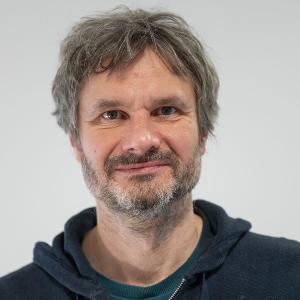ERC grants: two LMU research projects successful
31 Jan 2023
The European Research Council has awarded two Consolidator Grants to LMU researchers. Projects from the fields of pharmacy and history receive funding.
31 Jan 2023
The European Research Council has awarded two Consolidator Grants to LMU researchers. Projects from the fields of pharmacy and history receive funding.
Historian Martin Biersack and pharmacist Olivia Merkel have each been awarded a Consolidator Grant by the European Research Council (ERC). For Olivia Merkel, it is the third ERC grant of her career, having already obtained a Starting Grant in 2014 and a Proof of Concept Grant in 2022.
The award comes with funding of up to two million euros for a period of five years. Through Consolidator Grants, the ERC helps excellent scientists continue to develop and consolidate their innovative research. The basis for the ERC decision in awarding the prestigious grant is the scientific excellence of the applicant and of the research project.

Dr. Martin Biersack | © LMU
Dr. Martin Biersack has been a research fellow at LMU’s Institute of Early Modern History since 2015. His main research interest is in Spanish colonial history.
Security became a key concept of governance in the latter years of the Spanish Empire. This trend had its origins in the final third of the 18th century when strong political currents such as the independence of the United States and the French Revolution were calling colonial rule into question. At that time Spain was afraid of losing its American possessions. The Spanish government’s unease and mistrust toward its own population in the Americas prompted it to introduce security measures designed to buttress colonial order.
Taking this background as the starting point for his ERC project SUSPICIO (Creating Suspects. Security Politics and Colonial Rule in the Spanish Empire), historian Martin Biersack will investigate previously neglected sources on issues relating to political crime. The LMU researcher wants to analyze how the colonial administration identified and evaluated suspects who were perceived as a threat to order. To make a person an enemy of the state, it was no longer necessary for them to have actually committed a seditious act, rather it was enough to merely suspect that they might – perhaps, in the future – commit acts against the state. In his project, Biersack will investigate to what extent the persecution of suspects polarized the population and thus far from stabilizing colonial rule, actually tended to weaken it. This study of the ambivalence and counterproductive effects of security policy, explains Biersack, will also open a fresh perspective on the dissolution of the Spanish Empire.
Martin Biersack studied history and German philology at the Universities of Regensburg and Granada and completed his doctorate at the University of Regensburg. He was a tenured high school teacher (Studienrat) in German and History, before going to the National University of San Martín in Buenos Aires on a German Academic Exchange Service (DAAD) research scholarship. In 2021, he completed his habilitation degree in modern history at LMU.

Prof. Dr. Olivia Merkel | © LMU
Olivia Merkel is Professor of Drug Delivery at LMU’s Department of Pharmacy. She researches novel nano transport systems for the targeted local administration of drugs. Her primary focus is on the therapeutic application of short RNA double-strands – so-called siRNAs – which can silence genes involved in pathogenesis in specific cell types.
In her new project RatInhalRNA (Rational and Simulation-Supported Design of Inhalable RNA Nanocarriers), Merkel is seeking to develop efficient siRNA-based drugs that can be administered to the lungs through inhalation. Numerous promising targets in the lungs can be treated with such therapeutics. However, the siRNA formulations currently available are not suitable for inhalation. This is where Merkel’s project comes in, which aims to accelerate the development and optimization of suitable new nano transporters for short siRNA double-strands. Merkel proposes to do this by combining and integrating molecular dynamics simulations and machine learning methods for the first time. To this end, she will synthesize specific polymers that are loaded with siRNAs and tested and analyzed regarding their suitability and efficacy by means of various in vitro and in vivo methods. Using these results, Merkel plans to develop a model that predicts the suitability of improved polymers as efficient siRNA nanocarriers and can therefore reduce the experimental cost and improve sustainability and animal welfare.
Olivia Merkel studied pharmacy at the University of Marburg, where she also completed her doctoral studies. She worked as a postdoc in Marburg from 2009 to 2011 and then as a tenure track professor at Wayne State University in Detroit, USA. Since October 2015, she has been a professor at LMU and has been Chair of Drug Delivery since 2022.